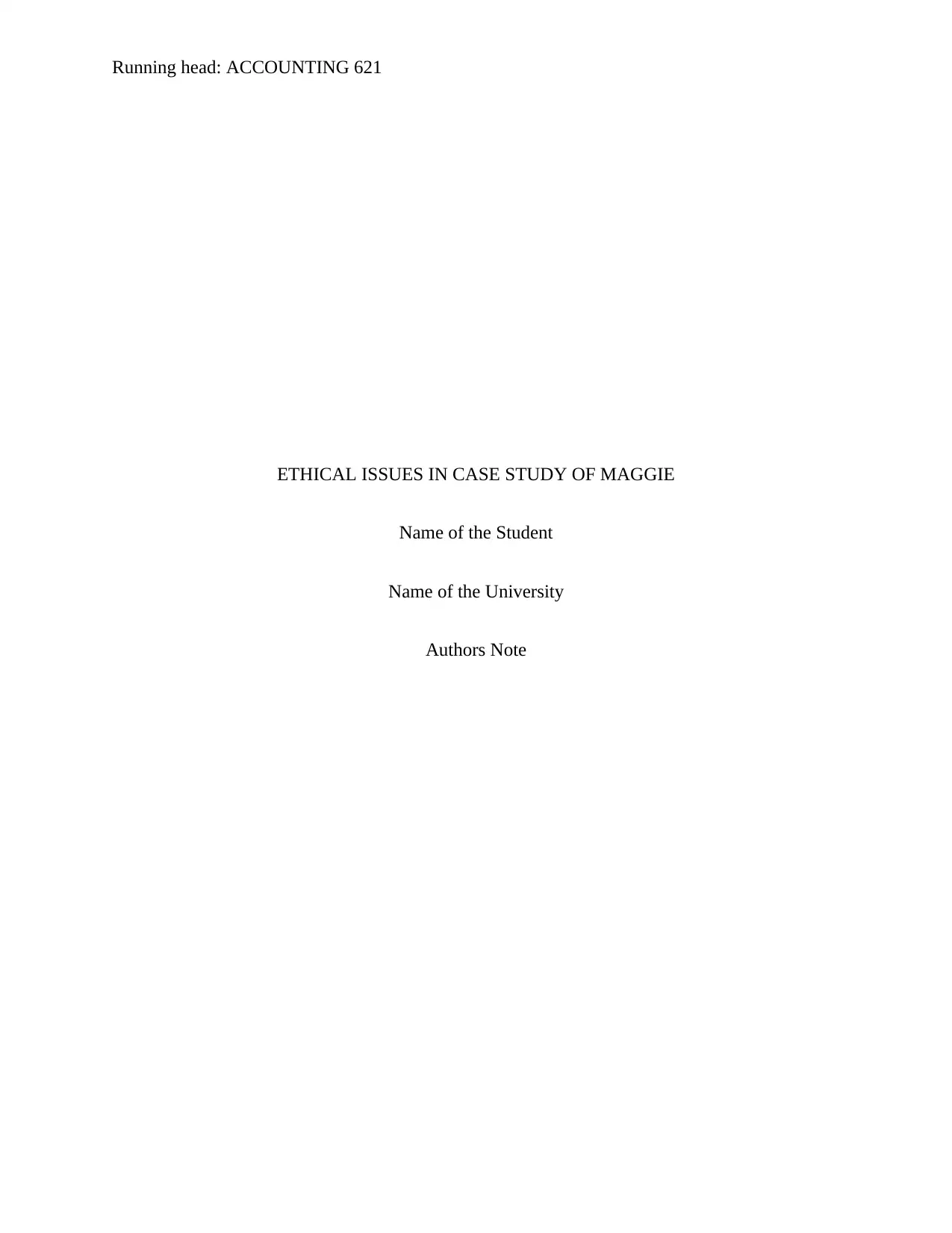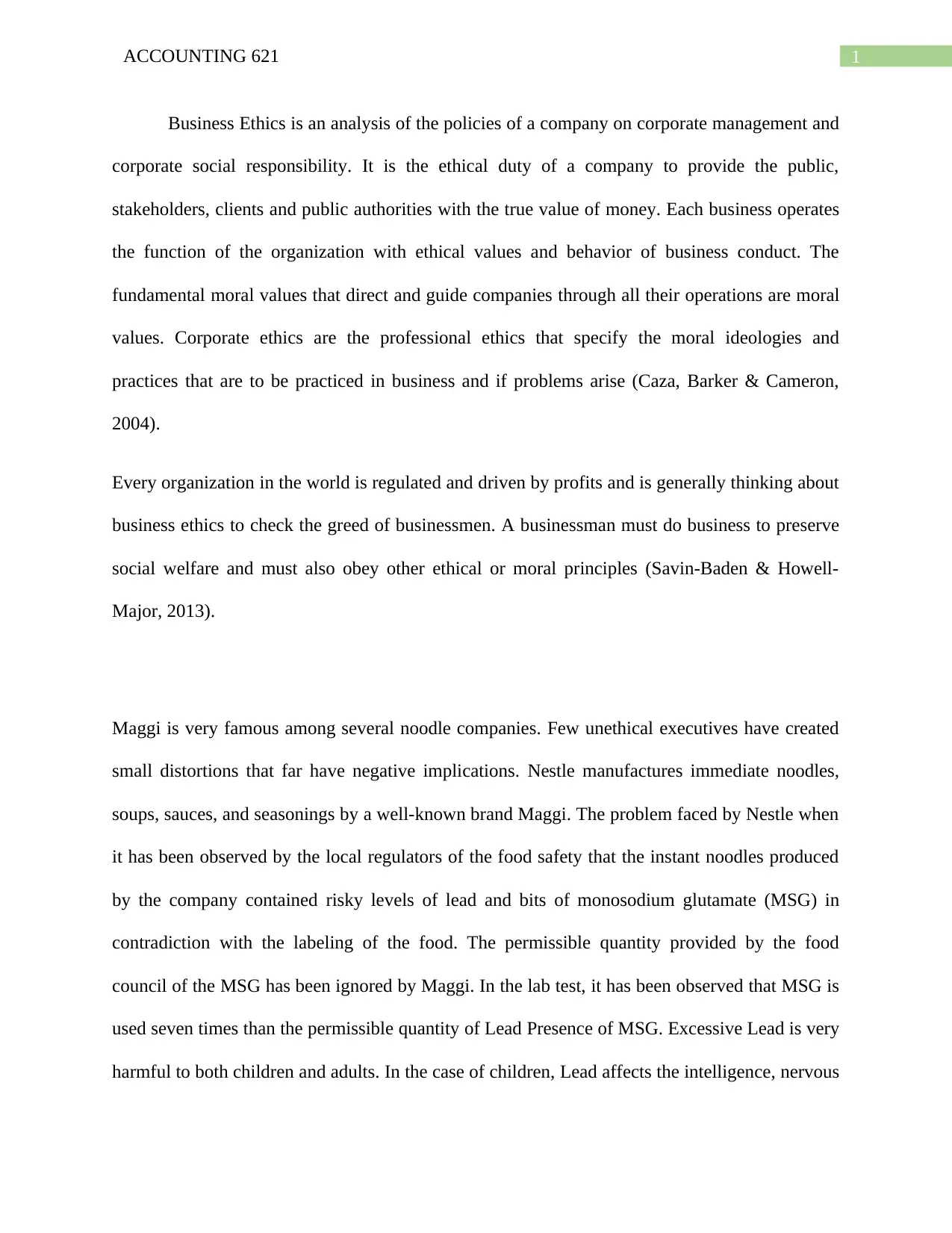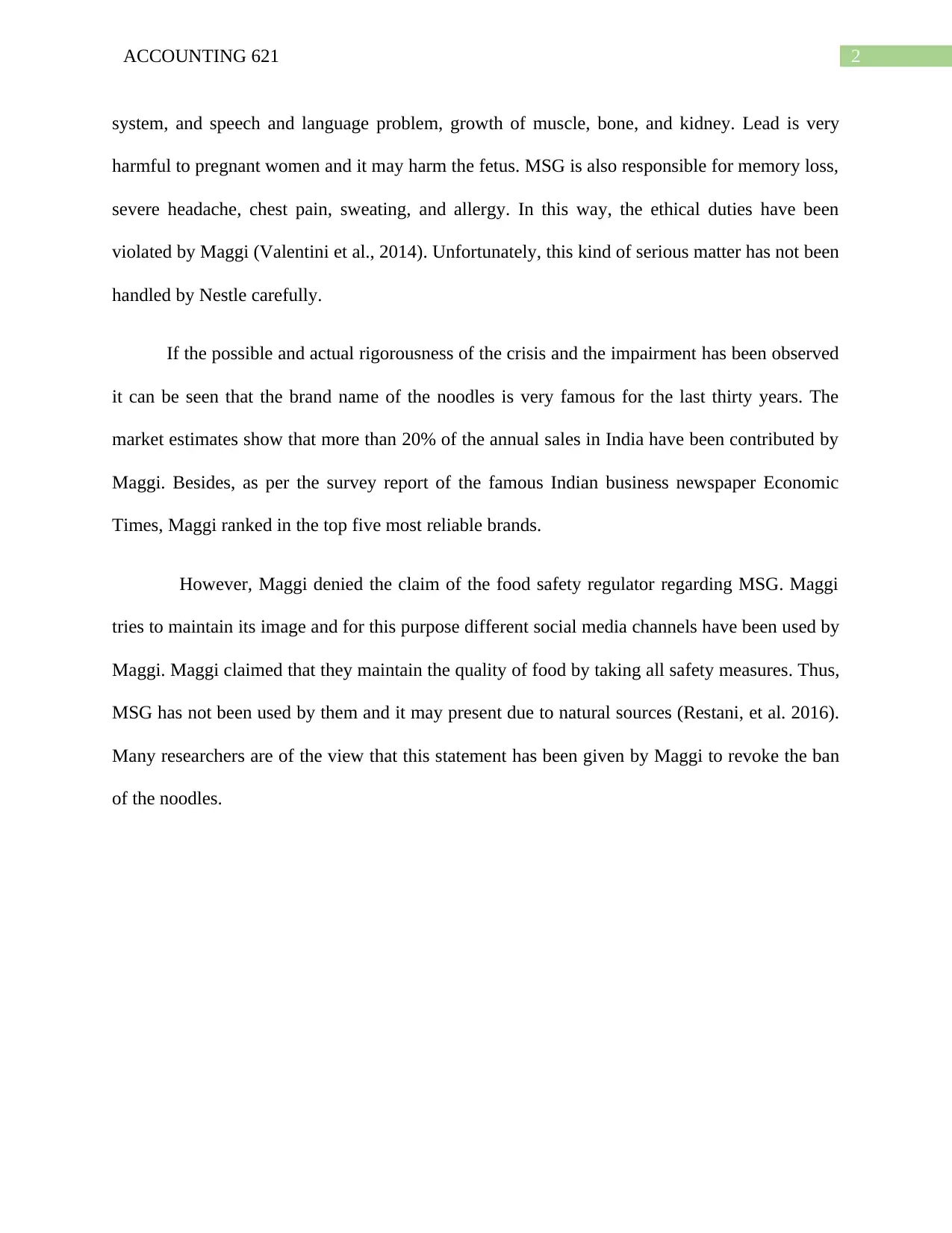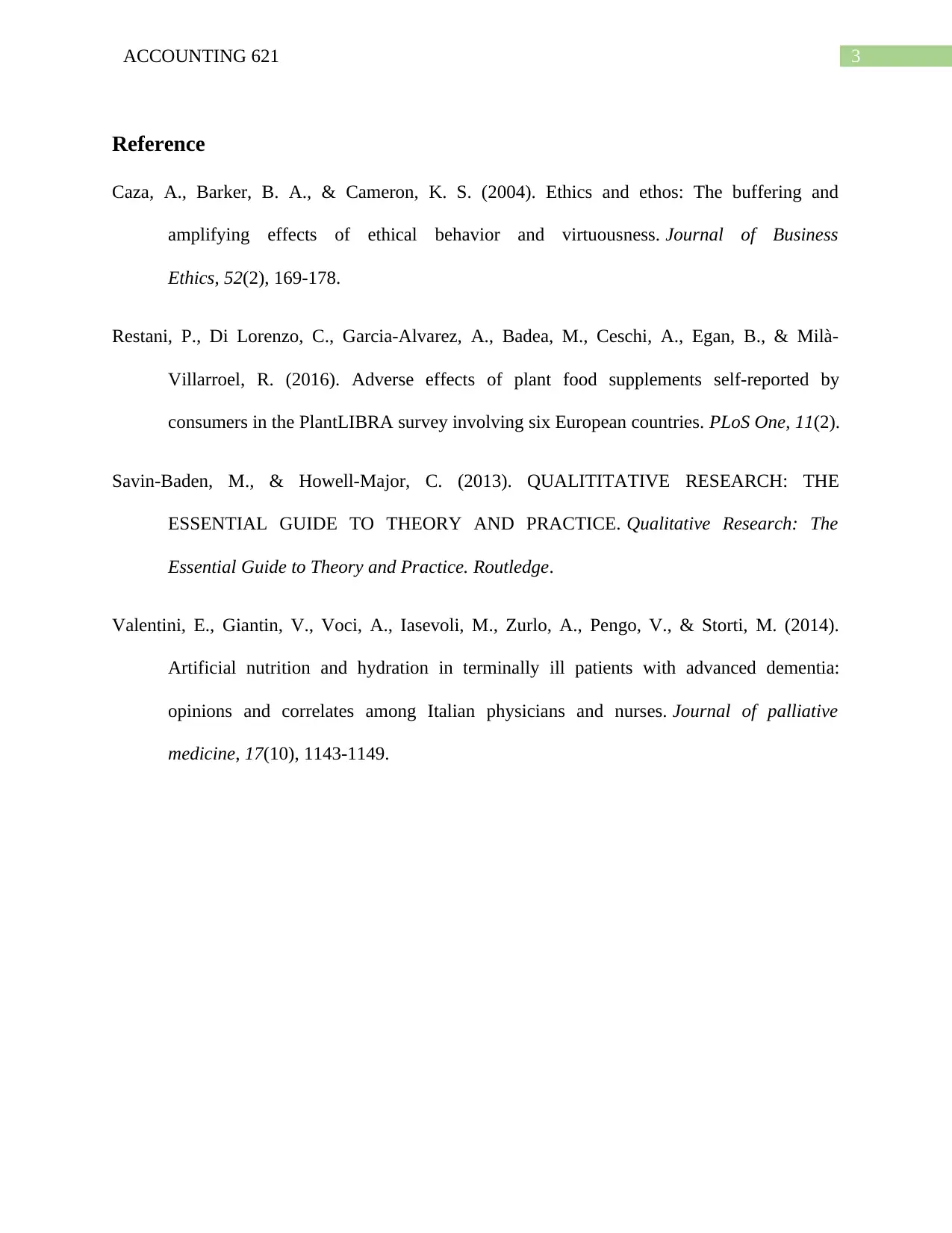Analysis of Ethical Violations in Maggi Case Study - Accounting 621
VerifiedAdded on 2022/08/21
|4
|815
|16
Case Study
AI Summary
This case study examines the ethical issues arising from the Maggi noodle crisis, focusing on Nestle's violation of ethical duties. The assignment highlights the presence of excessive lead and monosodium glutamate (MSG) in Maggi products, contradicting food safety regulations and posing health risks to consumers, particularly children and pregnant women. The analysis explores the company's response to the crisis, including its denial of claims and attempts to maintain its brand image through social media. The study references various academic sources to support its arguments, addressing the impact of unethical practices on corporate management, social responsibility, and public trust. It also delves into the harmful effects of lead and MSG, emphasizing the importance of ethical conduct in business operations and the preservation of social welfare. The case study underscores the significance of ethical values in guiding business decisions and the potential consequences of neglecting these principles.
1 out of 4











![[object Object]](/_next/static/media/star-bottom.7253800d.svg)